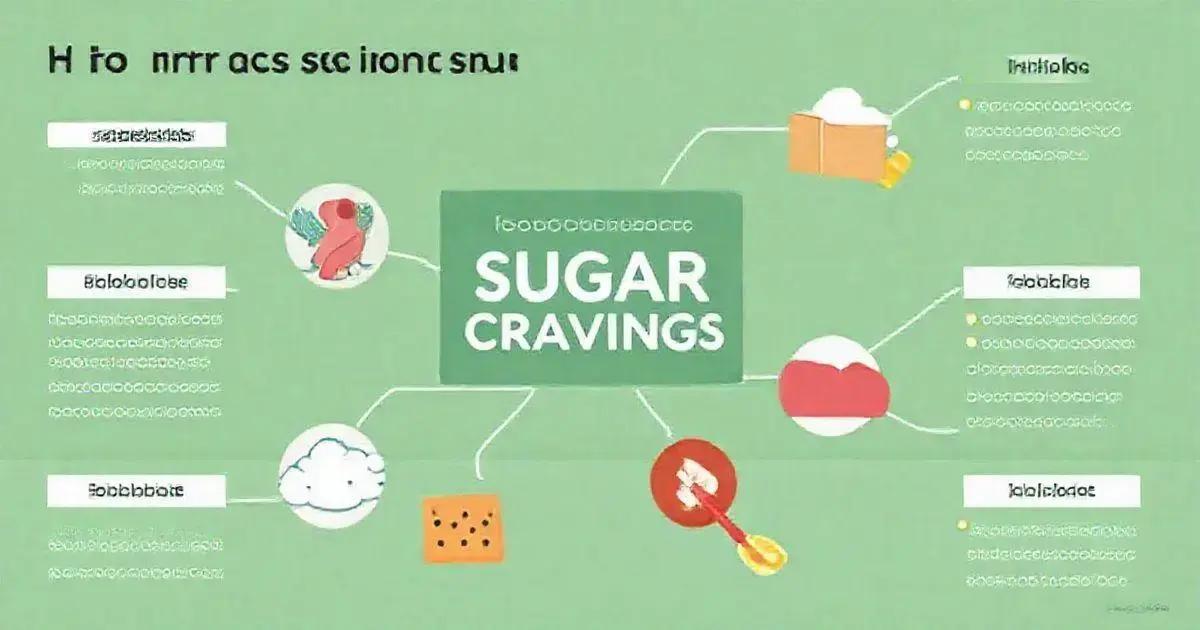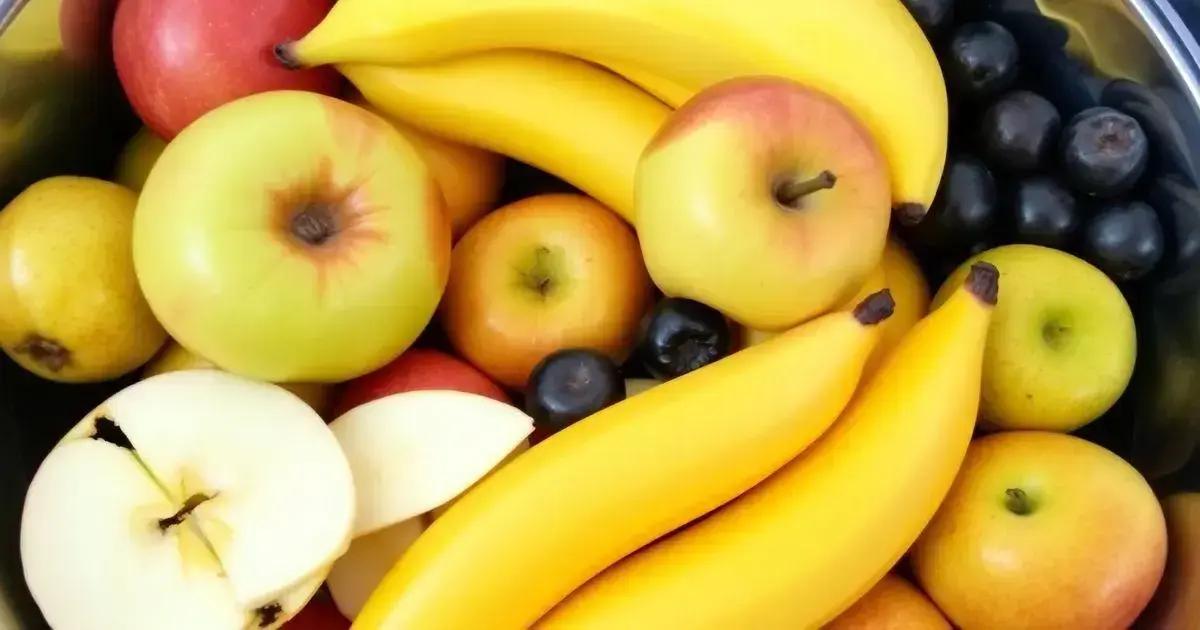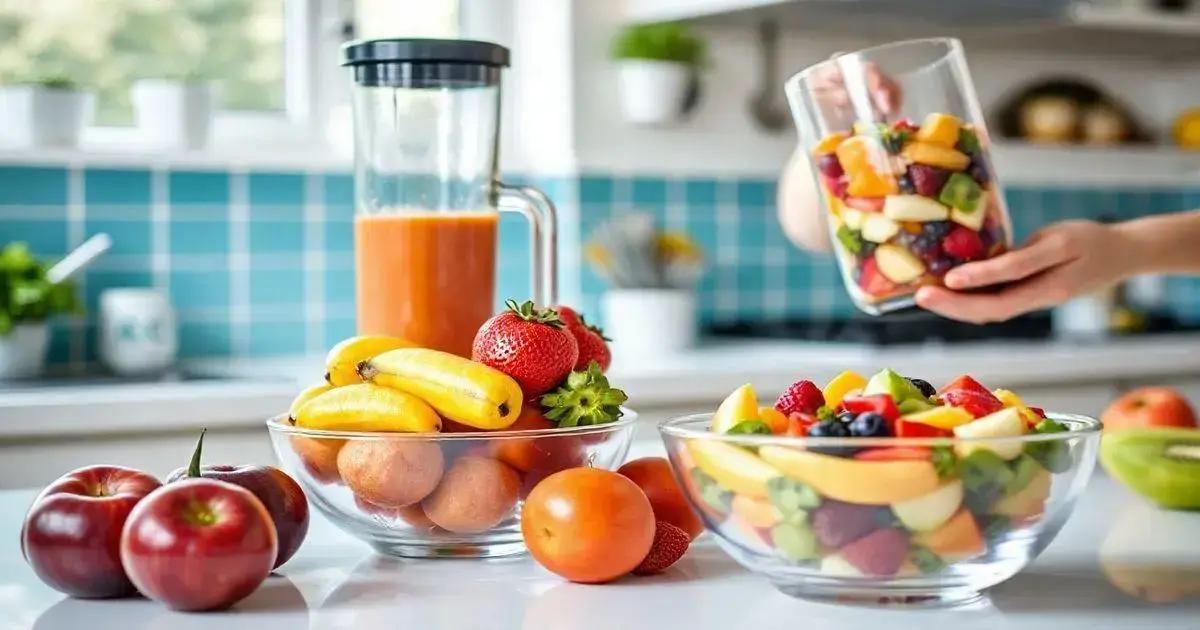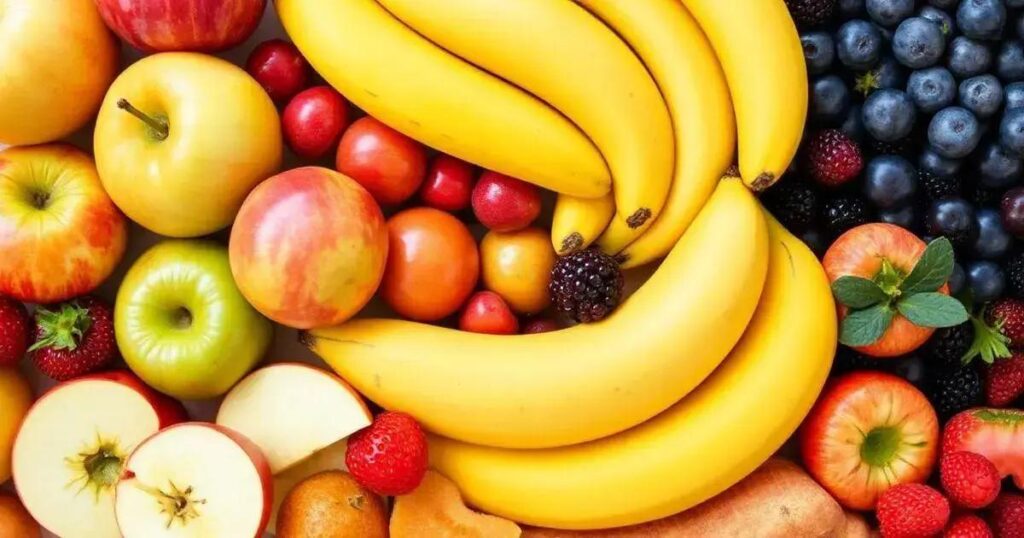The role of whole fruits in reducing sugar cravings is significant, as they provide essential nutrients and fiber that stabilize blood sugar levels, satisfy sweet cravings naturally, and promote healthier eating habits without the negative effects of refined sugars.
If you’re struggling with sugar cravings, you’re not alone. Many people find it challenging to resist sugary snacks and desserts. Surprisingly, incorporating whole fruits into your diet can play a significant role in reducing these cravings. Whole fruits are not only delicious but also packed with essential nutrients that help stabilize blood sugar levels and curb sugar desires. In this article, we will discuss the connection between sugar cravings and whole fruits, explore the nutritional benefits they offer, and provide practical tips for adding more fruits into your meals.
Understanding Sugar Cravings

Sugar cravings are a common struggle for many individuals. They can occur for various reasons, including emotional triggers, habits, and physiological factors. Understanding what causes these cravings is the first step in managing them effectively.
Biological Causes
Your body naturally craves sugar because it is a quick source of energy. When you consume sugary foods, your body releases dopamine, a feel-good hormone. This can create a cycle where you start to crave sweets more often to experience that rush again.
Emotional Triggers
Sometimes, sugar cravings are linked to emotions. Stress, anxiety, and even boredom can lead you to seek comfort in sweet snacks. Many people associate sugary treats with happy times, further connecting emotions to these cravings.
Habits and Routines
When you regularly consume sugary foods, your body and mind can become conditioned to expect them. This habitual behavior can embed the desire for sweets, making it harder to break the cycle and reduce cravings over time.
Blood Sugar Levels
Fluctuations in blood sugar levels can also contribute to sugar cravings. When blood sugar dips, your body signals a need for quick energy, often leading to a sweet craving. Eating balanced meals that stabilize blood sugar may help manage these urges.
By understanding the roots of sugar cravings, you can take steps to combat them more effectively. Recognizing the biological, emotional, and habitual elements involved provides insight into how to better manage your relationship with sugar and maintain healthier eating habits.
How Whole Fruits Help

Whole fruits play a significant role in helping to reduce sugar cravings. By including them in your diet, you can address the underlying reasons for these cravings effectively.
High Fiber Content
One of the main benefits of whole fruits is their high fiber content. Fiber helps slow down digestion, which leads to a more gradual release of sugar into the bloodstream. This stabilization can prevent spikes and drops in blood sugar, reducing the likelihood of sudden cravings.
Natural Sweetness
Whole fruits contain natural sugars that satisfy your sweet tooth without the negative effects of refined sugar. When you choose fruits, you consume nutrients and antioxidants as well, making them a healthier option. This natural sweetness can effectively curb cravings for unhealthy sugary snacks.
Hydration and Fullness
Many fruits have high water content, which helps enhance feelings of fullness. Staying hydrated is crucial for managing cravings, as dehydration can sometimes be confused with hunger. By eating fruits like watermelon or oranges, you not only hydrate but also aid in feeling satisfied.
Promoting Healthy Habits
Incorporating whole fruits into your daily routine can foster healthier eating habits. When you replace sugary snacks with fruits, you create a pattern of reaching for healthier options. This shift can gradually lead to a decrease in sugar cravings over time.
Additionally, the act of preparing and eating whole fruits can create mindfulness around your food choices, further strengthening your resolve to choose health over sugar.
Nutritional Benefits of Whole Fruits

Whole fruits offer a wealth of nutritional benefits that can significantly improve your overall health. By incorporating them into your diet, you can experience numerous advantages that may help in reducing sugar cravings.
Vitamins and Minerals
Whole fruits are rich in vitamins and minerals essential for your body. For instance, oranges are high in vitamin C, which helps boost your immune system. Bananas are a great source of potassium, vital for healthy heart and muscle function. Regularly consuming a variety of fruits ensures you get the necessary nutrients your body needs.
Antioxidants
Many fruits are packed with antioxidants, which protect your cells from damage caused by free radicals. Berries, for instance, are particularly high in antioxidants that can help reduce inflammation and promote heart health. Including these fruits can lower your risk of chronic diseases.
Low in Calories
Whole fruits are generally low in calories but high in nutrients, making them an excellent choice for snacks. They can satisfy your sweet cravings without contributing to weight gain. This low-calorie content allows you to enjoy snacks and still maintain a healthy diet.
Hydration
Fruits with high water content, like watermelon and oranges, contribute to your daily hydration needs. Staying hydrated is crucial, as it can help manage cravings and improve your overall energy levels. Proper hydration may also reduce the tendency to confuse hunger with thirst.
In summary, by eating whole fruits, you not only indulge in their natural sweetness but also reap the many nutritional benefits they offer. These advantages support your health while helping you manage sugar cravings effectively.
Practical Tips for Incorporating Fruits

Incorporating whole fruits into your daily diet can be simple and enjoyable. Here are some practical tips to help you add more fruits to your meals and snacks.
Keep Fruits Visible
Place fresh fruits in easy-to-reach spots like your kitchen counter or dining table. When you see them, you’re more likely to grab them as a quick snack. Choose a variety of colors to make the display appealing.
Make Smoothies
Blending fruits into smoothies is an excellent way to enjoy their flavors. Combine fruits like bananas, berries, and spinach for a nutritious drink. You can even add yogurt or milk for creaminess. Smoothies are perfect for breakfast or a healthy snack.
Add to Meals
Include fruits in your meals by adding them to salads, oatmeal, or yogurt. Try topping cereal or oatmeal with sliced bananas or berries. You can also add fruits like apples or pears to salads for extra crunch and flavor.
Experiment with Dishes
Incorporate fruits into main dishes. For example, use pineapple in stir-fries or add peaches to grilled chicken. Experimenting with fruit can make meals more exciting and boost their nutritional value.
Additionally, you can set aside time to prepare fruits in advance, like slicing apples or making fruit salad. This makes it easier to reach for healthy options when you’re hungry.
Embracing the Power of Whole Fruits
Incorporating whole fruits into your diet is a powerful way to combat sugar cravings while enhancing your overall health. The nutritional benefits of fruits, including vitamins, minerals, and antioxidants, play a vital role in your wellness journey.
By understanding sugar cravings and how whole fruits can help, you can make informed choices that support healthier eating habits. Practical tips for incorporating fruits into your daily routine ensure that you can enjoy their natural sweetness without compromising your health.
Ultimately, making whole fruits a staple in your diet can pave the way for better energy levels, improved mood, and reduced cravings, creating a sustainable path toward a healthier lifestyle.
FAQ – Frequently Asked Questions about the Role of Whole Fruits in Reducing Sugar Cravings
How can whole fruits help reduce sugar cravings?
Whole fruits are high in fiber and nutrients, which help stabilize blood sugar levels and satisfy sweet cravings naturally.
What are some nutritious fruits to include in my diet?
Fruits like berries, bananas, apples, and oranges are excellent choices due to their high vitamin and antioxidant content.
How can I easily incorporate fruits into my meals?
You can add fruits to your smoothies, salads, oatmeal, or even main dishes to enrich your meals with their nutrients and sweetness.
Are there any special considerations when consuming fruits?
While fruits are healthy, it’s best to eat a variety and be mindful of portion sizes to balance your diet and avoid excess sugar.
Can eating fruits help with hydration?
Yes, many fruits, such as watermelon and oranges, have high water content which contributes to your overall hydration.
What are some tips for choosing the best fruits?
Select a variety of colorful fruits, choose seasonal options for better taste and freshness, and opt for whole fruits over fruit juices.













